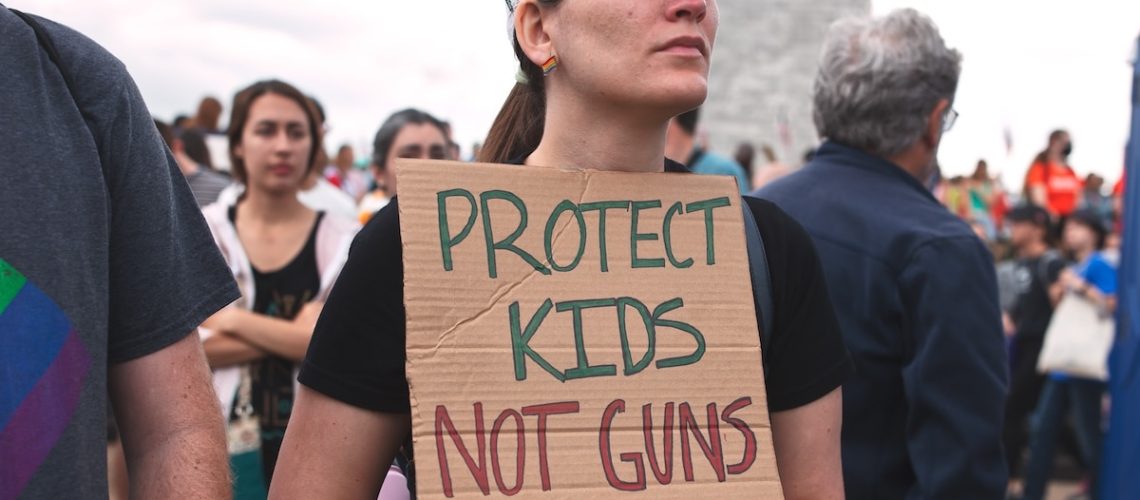In the wake of yet another mass shooting at Apalachee High School in Georgia, which tragically claimed the lives of four students and injured dozens more, campaigners for gun reform have once again intensified their efforts. The incident, which marks another devastating blow in America’s ongoing gun violence crisis, has spurred calls for Congress to pass comprehensive gun control legislation that could prevent future tragedies.
President Joe Biden, in his response to the shooting, highlighted the urgency of the situation. “We cannot continue to accept this as normal,” he said, following the events in Georgia. “What should have been a joyous back-to-school season in Winder, Georgia, has now turned into another horrific reminder of how gun violence continues to tear our communities apart.”
The president has long been a vocal supporter of stricter gun control measures. Still, this recent event has added fuel to the administration’s ongoing efforts to pass key reforms, including reinstating the assault weapons ban, universal background checks, and enforcing safe storage of firearms.
The Role of the Biden Administration
One of the major steps the Biden administration has taken toward addressing the epidemic of gun violence was the signing of the Bipartisan Safer Communities Act in 2022. This law marked the most substantial piece of federal gun safety legislation in nearly 30 years, expanding background checks for gun buyers under the age of 21 and providing funding for mental health services and school safety. However, as Biden himself pointed out following the recent school shooting, “We’ve made significant progress, but this crisis requires even more action.”
In addition to the Bipartisan Safer Communities Act, Biden’s administration also established the White House Office of Gun Violence Prevention in 2023, a move designed to coordinate federal efforts to reduce gun violence and work closely with states and local governments. Vice President Kamala Harris, who oversees the office, has called for the continuation of efforts to push for comprehensive gun safety measures. Biden made it clear that “none of these steps alone is going to solve the entirety of the gun violence epidemic,” but together, they “will save lives.”
Grassroots Movements and Public Support
Despite the efforts at the federal level, grassroots movements have continued to play a crucial role in pushing for reform. Groups like Moms Demand Action and March for Our Lives have been at the forefront of the fight for gun control, organizing protests, rallies, and campaigns to keep the pressure on lawmakers.
David Hogg, a survivor of the 2018 Parkland school shooting and co-founder of March for Our Lives, reiterated the urgency after the Georgia shooting. “How many more lives will be lost before we say enough is enough?” he tweeted, reflecting the growing frustration among young activists who demand action.
Public opinion remains firmly in favor of many gun control measures. A recent poll by the Pew Research Center found that a majority of Americans support universal background checks, bans on high-capacity magazines, and stricter regulations on the sale of assault weapons. This overwhelming public support has fueled the determination of campaigners to see real change enacted. Yet, despite this, significant legislative roadblocks remain.
Political Resistance and the NRA
As always, efforts to pass gun reform in Congress face fierce resistance from gun rights advocates and lobbying groups like the National Rifle Association (NRA). Pro-gun groups argue that any restrictions on firearm access infringe on Second Amendment rights and that the focus should instead be on enforcing existing laws and addressing mental health issues. A spokesperson for the NRA, responding to the latest shooting, stated, “Punishing law-abiding citizens by restricting their ability to protect themselves is not the answer. We need to enforce existing laws and focus on the real issues, like mental health.”
This line of argument continues to gain traction among many Republicans in Congress, who have repeatedly blocked attempts to pass stricter gun control laws. Even the relatively moderate measures proposed in the Bipartisan Safer Communities Act faced significant opposition, reflecting the deep political divisions over this issue.
This article was first published on Pulse of Pride.
Feature photo credit: Shutterstock/ Johnny Silvercloud. The images used are for illustrative purposes only and may not represent the actual people or places mentioned in the article.
For transparency, this content was partly developed with AI assistance and carefully curated by an experienced editor to be informative and ensure accuracy.

